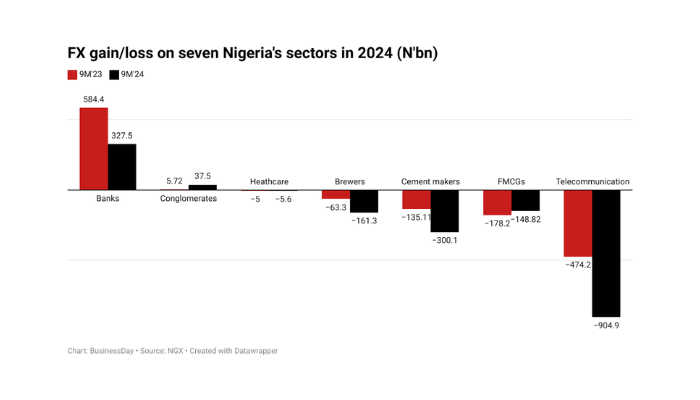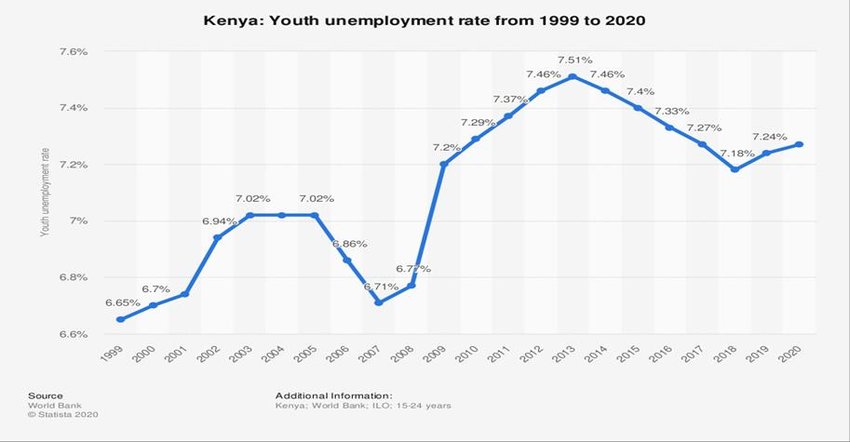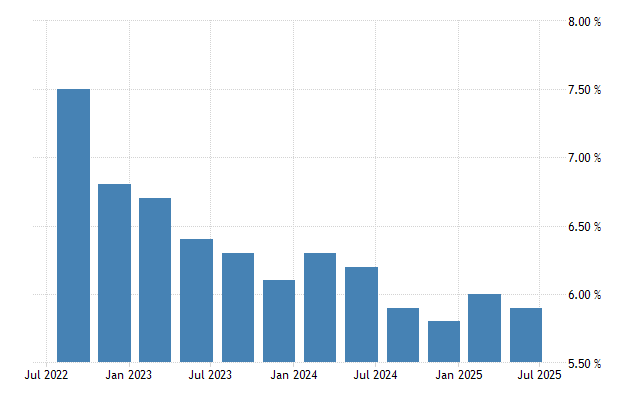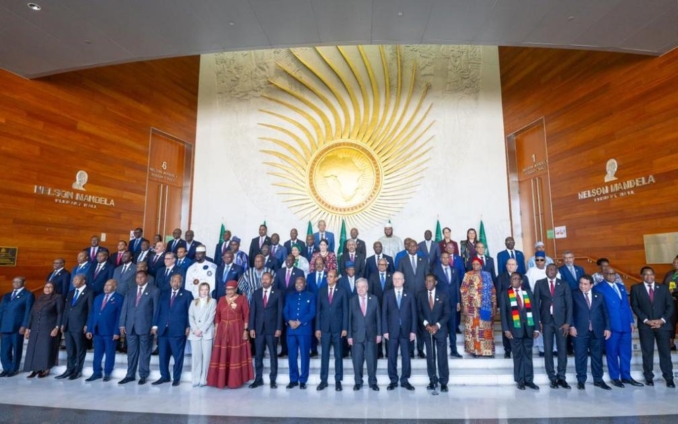Redefined Career Paths: The State of Work Across Africa in Late 2025.

The African labor market is not a single, monolithic entity but a swirling kaleidoscope of survival, digital aspiration, and powerful economic forces.
From sprawling solar farms in North Africa, to chaotic, vibrant marketplaces in West Africa, millions of young people are redefining what it means to have a career. They are building the future of work one gig, one line of code, and one side-hustle at a time.

This is the up-close, human-centered view of six nations, as they navigate a year of both intense growth and stubborn challenges.
The Green and Digital Transformation In Morocco.
The shift to green energy, particularly advanced manufacturing, is palpable in Casablanca and Rabat. Morocco wants to become a regional hub for automotive, aerospace, and renewable energy parts.
For a young graduate in engineering, this also means finding an opportunity to work in a high-tech factory instead of emigrating.
Yet, deep anxiety remains with youth unemployment standing high at about 36.7% in Q4 2025, which is reflective of a system that cannot absorb its own talent.
Take Fatima in Fez. Together with four other friends, she runs a digital cooperative. With the skills of UI design and digital marketing, they brand artisanal Moroccan products for global e-commerce.
They don't have corporate benefits, but they have autonomy and a direct line to international revenue which is a growing necessity for young Moroccans.
The big question is whether training programs in high-demand fields like software testing or multilingual customer service can keep up with the huge number of young people looking for jobs.
Right now, the results are mixed; some are getting opportunities, but many end up working as online freelancers for Spanish and French companies instead.
Survival Economics and Unstoppable Ingenuity of Nigeria.
Nigeria is the poster child of what one might call a Hustle Economy. Due to persistent macroeconomic volatility, precipitated particularly by a high cost of living and the volatility of the Naira, having one job almost feels like a luxury.

Everybody has one side hustle or another, and lines between formal and informal work have completely dissolved.
These numbers reflect the root of this resilience, with more than 80 per cent of employment being in the informal sector. This has involved everyone from the delivery rider who hawks phone accessories to the market trader who runs a social media branding service on the side.
If Tunde, a developer in Lagos, lost his job at a promising fintech startup, he would not be worried. He seamlessly will segue into two remote contract jobs-one for a US-based logistics company and another for a UK marketing agency.
His local job vanished, but his global skills will keep him solvent. For many educated Nigerians these days, the ultimate goal is no longer to land a good local job but to earn a steady dollar income by working remotely.
“This educational experience will enrich me as a scholar and equip me with the knowledge and training necessary to become an effective international development professional.” has become the mindset of Nigerian youths.
While the celebrated FinTech boom has cooled down, chaos fuels new growth in HealthTech, AgriTech, and logistics platforms-companies designed to solve some of Nigeria's most fundamental infrastructural problems and, in the process, create jobs.
The Gig Economy's Promise and Peril in Kenya.
Kenya remains a powerhouse in Silicon Savannah, but the job market of this country is afflicted with the twin demons: underemployment and a high cost of urban living.
Whereas the unemployment rate, put at about 7.5% for late 2025 using the ILO method, is far below the real situation, it is the number of underemployed youth trapped into low-wage, inconsistent gig work that better reflects reality.

College graduates, employed by the outsourcing company Samasource, work in this busy internet cafe in Nairobi, Kenya's capital, labeling and transcribing data for artificial intelligence projects of global tech companies.
Their pay is stable, their career trajectory anything but. Then there is Sarah, employed by an agritech company to analyze drone footage of tea farms to track crop health. She's digital, she's technical, but her salary barely covers the rent in her Nairobi neighborhood.
Meanwhile, the government's Ajira program still pushes young Kenyans into the online gig economy, connecting them to foreign contracts in virtual tutoring and cloud-based services. The real struggle is converting these digital gigs into long-term, wealth-building careers.
South Africa: Ambition vs. Policy and Deep Inequality
Where most acute, South Africa faces this challenge: its youth unemployment rate remains catastrophic, standing at 62.2% in Q2 2025 (an expanded definition). It is mainly black youth experiencing this joblessness; hence, issues of equity and transformation are the heart of the country's economic challenges.
New employment equity legislation is forcing companies to change their hiring practices as a means of promoting diversity and inclusion. While socially essential in furthering the cause of equality, sometimes such policies lead to bureaucratic friction that can dampen the overall rate of job creation.
Lethabo of Soweto was not waiting for this corporate job. He took an online course to learn video editing for one year. Using his video editing skills, he developed social media content for small businesses in Johannesburg and started a small design agency.
His ambition is to grow his team from two to ten people; a small act of formal job creation that punches back against the overwhelming statistics.
It is highly unlikely that the changes in rhythm are due to seasonal influences.
Anchoring the formal economy are still the steady sectors of finance and health care, but the real dynamism is in the new small ventures centring on sustainability, renewable energy installation, and digital creative arts.
Mauritius: The Island's High-Tech Evolution
Mauritius is in the midst of its deliberate, high-level, high-stakes transformation. Having successfully regained its main tourism sector, the focus is now totally on becoming an Innovation Hub around FinTech and high-value-added ICT services.
While the official unemployment rate of this island is rather low, at 5.85% for Q2 2025, this veil masks an important underlying issue: a sizable skill mismatch. Local education has not kept pace with specialized needs associated with Cloud Computing, Cybersecurity, and AI development.

A young Mauritian financial analyst, Jean-Luc, recently quit his job at a traditional offshore bank. Working fully remotely for a Swiss FinTech company, managing global compliance, his salary keeps him home.
The government’s challenge, to train the next Jean-Luc fast enough. The solution is intense private-public partnerships that bridge the skills gap, making education ultra-responsive to industry demands.
Looking at the graph of this function, we can observe that around three-quarters of the way up, which corresponds to 15%, there exists a critical point.
Normalization of the Hybrid Life in Ghana.
Confidence has returned to Ghana, partly because of currency stabilization and serious government focus on job creation through agritech and manufacturing, including a new Feed Ghana Programme.

Most importantly, however, the nature of work itself has shifted.
The hybrid worker is the new normal. You find professionals who do regular office jobs to create income stability but dedicate their nights and weekends to freelancing as copywriters for European brands or building their own agritech startups that connect farmers to digital markets.
Ama works three days in the marketing department at a local firm in Accra, and on the other days, she runs an online boutique selling clothes sourced from local textile makers. The flexibility is important because it gives her stable income locally while building her entrepreneurial dream.
This blended reality; the juggling of multiple identities and income streams is a new definition of professional life in Ghana.
The Continent in Motion
The African job market is a place of huge contrasts: high-tech solar panels sit beside roadside hustlers, world-class developers work for foreign salaries, while policymakers struggle to make historic rights.
Overwhelmingly, it is a story of unrelenting human agency-young people all across the continent who are, be it driven by policy, necessity, or just flat-out ambition, not waiting on the economy to come to them; they're going out and creating it, one ingenious step at a time.
You may also like...
When Sacred Calendars Align: What a Rare Religious Overlap Can Teach Us

As Lent, Ramadan, and the Lunar calendar converge in February 2026, this short piece explores religious tolerance, commu...
Arsenal Under Fire: Arteta Defiantly Rejects 'Bottlers' Label Amid Title Race Nerves!

Mikel Arteta vehemently denies accusations of Arsenal being "bottlers" following a stumble against Wolves, which handed ...
Sensational Transfer Buzz: Casemiro Linked with Messi or Ronaldo Reunion Post-Man Utd Exit!

The latest transfer window sees major shifts as Manchester United's Casemiro draws interest from Inter Miami and Al Nass...
WBD Deal Heats Up: Netflix Co-CEO Fights for Takeover Amid DOJ Approval Claims!

Netflix co-CEO Ted Sarandos is vigorously advocating for the company's $83 billion acquisition of Warner Bros. Discovery...
KPop Demon Hunters' Stars and Songwriters Celebrate Lunar New Year Success!

Brooks Brothers and Gold House celebrated Lunar New Year with a celebrity-filled dinner in Beverly Hills, featuring rema...
Life-Saving Breakthrough: New US-Backed HIV Injection to Reach Thousands in Zimbabwe

The United States is backing a new twice-yearly HIV prevention injection, lenacapavir (LEN), for 271,000 people in Zimba...
OpenAI's Moral Crossroads: Nearly Tipped Off Police About School Shooter Threat Months Ago
ChatGPT-maker OpenAI disclosed it had identified Jesse Van Rootselaar's account for violent activities last year, prior ...
MTN Nigeria's Market Soars: Stock Hits Record High Post $6.2B Deal

MTN Nigeria's shares surged to a record high following MTN Group's $6.2 billion acquisition of IHS Towers. This strategi...






